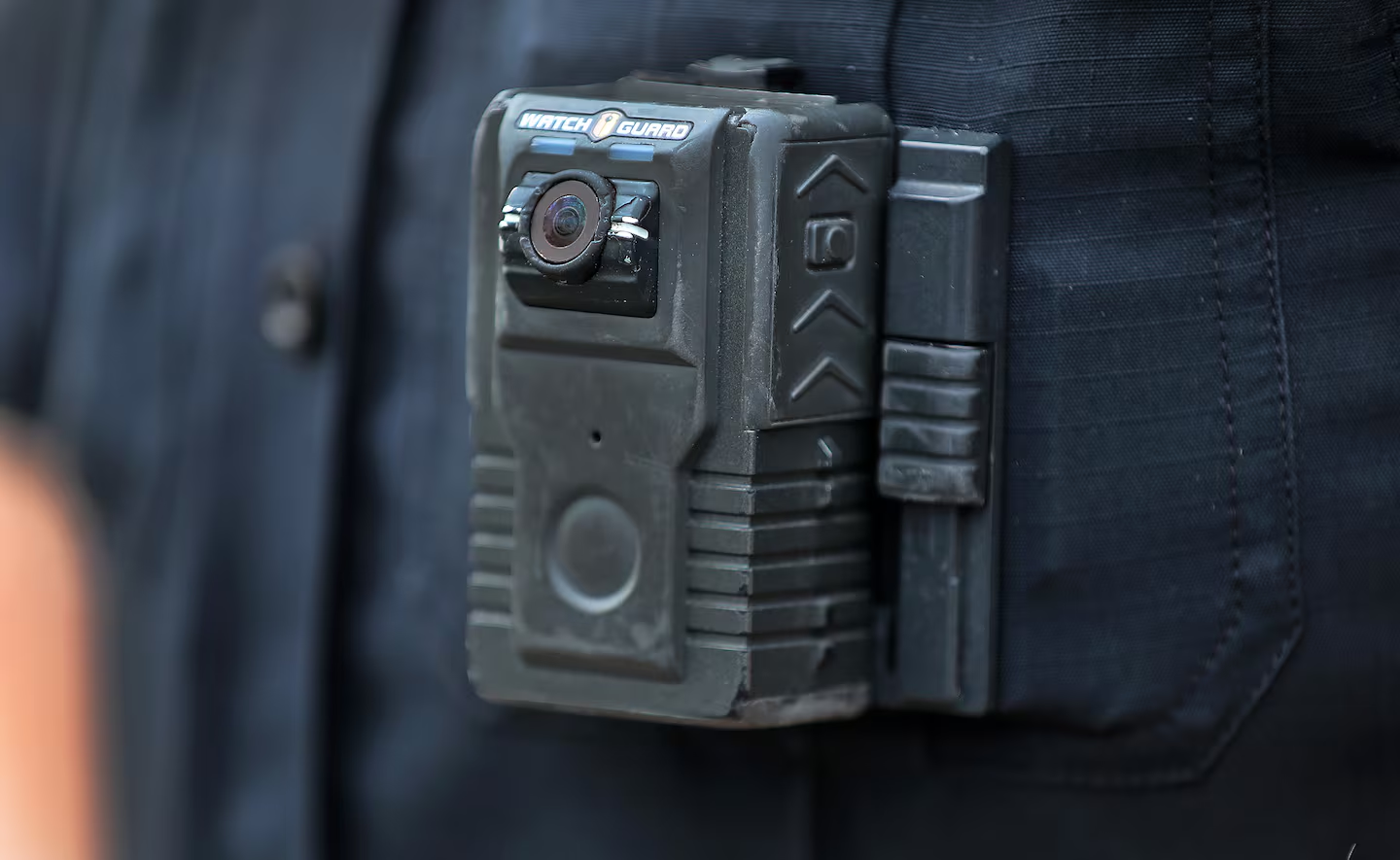
By Zichang Liu
Boston University News Service
In an era where communication is no longer confined to one medium, Massachusetts’ wiretap law remains frozen in time, a 56-year-old statute that couldn’t entirely fit into the realities of today’s digital landscape, raising questions for lawmakers, police officers and prosecutors seeking evidence for crimes and footprints.
As then-attorney general, Gov. Maura Healey supported efforts to update the state’s wiretapping law, calling it “an important issue.” She backed former Gov. Charlie Baker’s 2017 legislation to modernize the statute, highlighting its outdated nature and the challenges it posed to investigating serious crimes like human trafficking and narcotics rings.
However, her gubernatorial administration has not advanced major efforts on the topic.
In the fall of 2019, to capture a drug dealer in East Boston, an undercover Boston Police officer purchased drugs three times from a targeted suspect outside of a laundromat and in a pharmacy parking lot. Simultaneously, these transactions were surreptitiously recorded using Callyo, a widely-used law enforcement software, and live streamed to other officers nearby.
The suspect, Thanh Du, was identified through a phone number found on a deceased fentanyl overdose victim’s phone and subsequently arrested for drug trafficking.
Now, five years later, the conversation is still happening in the Massachusetts Supreme Judicial Court, with arguments whether those recordings should be deemed “unlawful interceptions” under the state’s wiretap law, which prohibits secret recordings without a warrant and the consent of all parties involved.
Under the current law, wiretap warrants are limited to investigations of organized crime and approved by judges. Massachusetts also requires all-party consent for any recording — one of the strictest stances in the country — while federal law and many other states only require one-party consent.
Sen. John Velis, D-Westfield, argued that the law is outdated and unsuited for modern investigations, particularly as most crimes today don’t meet the statute’s “organized crime” requirement.
He said the premise of requiring a wiretap warrant for organized crime sometimes conflicts with the process of collecting evidence.
He explained that many crimes, including murders, are often random acts by strangers or crimes of passion, which are not organized in the sense that what the law requires to fit that category of being an organized crime under the statute.
“I think it’s antiquated,” he said. “That’s probably the best word I can use to describe the wiretap law we have on the books.”
Impact beyond drug trafficking
Arguments about wiretap statute have also sparked ripples in domestic abuse cases.
In the summer of 2022, a woman secretly recorded her conversation with her abusive husband, who attempted to suffocate her with a pillow and threatened their young child in the Boston area. She was later charged with violating the wiretap law by recording without consent, even though she argued that she did so to protect herself and her child from her husband’s abuses, the court files say.
Sen. Patrick O’Connor, a Weymouth Republican who has spoken with the victim, said the law exacerbates harm by punishing abuse survivors.
“It’s important that we are able to protect women who record their abusers,” O’Connor said, emphasizing the need for legal reform to ensure survivors aren’t further victimized.
Earlier in this September, the woman’s husband, accused of assault and battery on a family member, appeared in court, where his attorney sought to have the charges dropped.
The charges against the wife will be dismissed after six months’ probation so long as she commits no additional crimes, according to the Cape and Islands District Attorney’s office.
Legal challenges in the digital age
In October, the complexities of the wiretap law extended beyond criminal investigations, delving into issues of digital privacy brought up by hospital patients.
Kathleen Vita, a Revere resident, filed a lawsuit against New England Baptist Hospital and Beth Israel Deaconess Medical Center, accusing them of violating the wiretap law by tracking and sharing website visitors’ data using tools like Meta Pixel and Google Analytics.
While she was looking up doctors and seeking information for her husband’s medical conditions, she noticed the pop-up windows stating: “We use cookies and other tools to enhance your experience on our website and to analyze our Web traffic.” The data and information collected would be tracked by a third-party service provider – Meta Pixel and Google Analytics – and be used for commercial purposes.
Vita’s lawyers argued that such information collecting behavior violated Massachusetts’ wiretap law as the browsers’ users won’t be specifically notified that the information they’ve collected will be transmitted to a third party.
The SJC ruled 5-1 that the hospitals did not violate the wiretap law, concluding that website interactions do not constitute “person-to-person” conversation or messaging within the wiretap act’s ambit.
“If the Legislature intends for the wiretap act’s criminal and civil penalties to prohibit the tracking of a person’s browsing of, and interaction with, published information on websites, it must say so expressly,” Justice Scott Kafker wrote for the court.
Kafker acknowledged that the hospitals’ alleged conduct raised serious concerns and may “indeed violate various other statutes,” he wrote about the improper handling of confidential medical information. “And we do not in any way minimize the serious threat to privacy presented by the proliferation of third-party tracking of an individual’s website browsing activity for advertising purposes. These concerns, however, should be addressed to the Legislature.”
Spurring calls for legislative action
From real-time drug busts to the re-victimization of abuse survivors and the balance between privacy and “optimized experiences,” the decades-old statute has sparked lawmakers to push for modernization.
“What’s happening is that judges are being confronted with situations involving technologies that just weren’t contemplated when this law was written,” Velis said. “When the world changes, we need to change with it.”
Velis proposed starting discussions to update the law while balancing concerns about government overreach as he is mindful of and had foreseen the concerns.
“A compromise” is necessary, he suggested between people who acknowledge that technology and crime have changed and those with privacy concerns could come to terms.
O’Connor echoed with such balance, highlighting the challenges of obtaining wiretap warrants under the current statute.
“So what we need to do is give the judges more flexibility in being able to issue these wiretap orders,” O’Connor said. He added that it is important to have a “clear picture” of different investigations, including developing a timeline and understanding what’s happening in a specific situation.
He said the totality of the positive impacts, as well as the accountability of going through the court system would add a significant layer of protection, which will give little opportunity for people to abuse these logs.
Velis and O’Connor both stated that they will continue prioritizing legislation in the next session to modernize the wiretap statute.
A Complex Legal Tool
Joseph Webber, the Northwestern Assistant District Attorney for Hampshire and Franklin counties, emphasized that wiretap warrants are already tightly regulated.
“What you’re trying to do with a wiretap is figure out the hierarchy of an organization and ensure you’re prosecuting the higher echelon,” Webber said. “You’re not just consistently arresting the persons standing outside holding a bag of drugs. You’re figuring out who’s trafficking it into Massachusetts.”
He noted that while wiretaps can be critical and more often used in certain jurisdictions, their time-intensive application process and associated costs mean they are not suitable for all cases.
Webber stressed the essential link between police officers and the judges.
“When police are applying for a wiretap statute, a judge would have that ability to make the determination whether or not there’s probable cause and whether the wiretap statute needs to be utilized instead of having a set list of offenses which may, in some cases, hinder an investigation unnecessarily so,” he said.
Webber said it’s vital not to create a separate problem unintentionally in the legislative process throughout time, “making sure that there’s some oversight from the judicial branch in terms of the search warrants and the renewal process certainly makes sense.”







